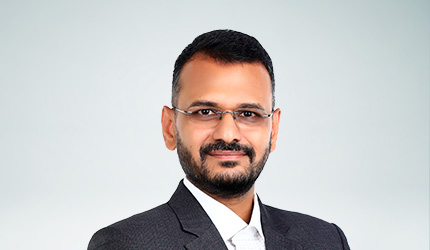For as long as insurance companies have existed, fraudsters have seen them as easy pickings, just requiring the right lies to unlock a flow of claims. Today, the healthcare industry’s rising complexity is generating a surprising bumper crop of frauds around the world from providers, specifically, doctors and hospitals.
Hard and soft frauds from providers
These providers perpetrate both hard and soft health insurance frauds. Hard frauds are those that deliberately and systematically seek to defraud insurers, and most frequently occur in the treatment and billing phases. They include fabrication of hospital bills, submission of false claims, systematic performance of unnecessary operations for financial gain, and the like. Criminal rings are sometimes involved in hard fraud schemes, and their costs to insurers can run into the billions.
Soft frauds, on the other hand, are generally opportunistic when they come from providers. Examples include: ordering extra and unnecessary tests, treatments and procedures; overbilling or double-billing for procedures; billing for procedures not performed and drugs not administered; and imposing huge markups on medical consumables such as brand-name drugs and home medical equipment.
More complex frauds such as unbundling (separating out the components of a procedure in order to charge for each piece independently) and up-coding (charging for a more expensive procedure than the one actually performed) also fall into the category of soft provider frauds. These frauds are generally carried out without a policyholder’s consent or even knowledge, and constitute the majority of provider-perpetrated health care frauds.
Increasingly expensive
Determining how much health insurers worldwide lose every year to fraud is almost impossible. Some statistics do exist about the number, monetary value and percent of health care spending that frauds detected constitute, but the real total is undoubtedly much higher.
According to “Combating Health Care Fraud in a Post-Reform World: Seven Guiding Principles for Policymakers,” an October 2010 white paper from the National Health Care Anti-Fraud Association, a US-based trade group, estimated financial losses due to health care fraud in the US alone in 2008 ranged from US$70 billion to US$234 billion – that is, between 3% and 10% of what American spent on health care that year1.
The Coalition Against Insurance Fraud, another US-based trade group devoted to fighting insurance fraud, keeps track of the total arrests and convictions for various frauds by category. According to its most recent statistics, the most fraud convictions are for Medicare and Medicaid fraud, with the next highest number for false medical claims, and the third highest for diversion of addictive drugs, a category the Coalition’s research has found costs private insurers as much as US$72 billion annually and is increasing among physicians and pharmacists2.
And fraud is not just an American problem. Most recent estimates from the UK’s Insurance Fraud Bureau state that undetected general insurance claims fraud totals £1.9 billion a year3. The Insurance Bureau of Canada, according to its most recent research, estimates that fraud related to home, car, and business claims alone costs insurers about C$500 million annually4.
While many of the more minor treatment- or billing-related frauds cited in this article are generally not medically harmful to individual patients, cumulatively they are harmful financially, both to individuals and to institutions.
Shocking scams
Recently, for example, the Indian government uncovered a hard fraud being perpetrated within its National Health Insurance Scheme. The scheme, designed for Indian citizens living below the poverty line, provides family insurance cover of Rs30,000 (US$660) per family of five for a minimal “enrolment fee” of Rs30 (US$0.65). Scheme administrators uncovered a reported Rs60 million (US$1.3 million) fraud in the Indian state of Kanpur, where administrators at the majority of the NHIS-empanelled hospitals in the region had colluded with insureds to defraud insurers by claiming for fictitious conditions. The fraud came to light when the perpetrators carelessly claimed a hysterectomy for a 67-year-old male and a hydrocele testis operation for a 60-year-old woman5.
Some of the more shocking frauds perpetrated by providers are medically harmful. The BBC as well as several other news organisations reported in October 2010 that eight doctors working at the Santa Rita clinic in Milan, Italy – since dubbed “Clinic of Horrors” – were jailed for performing a total of 83 unneeded operations purely to receive reimbursements from the national health system. The surgeries included an unnecessary mastectomy on an 18-year-old girl and three lung operations endured by an 88-year-old woman when a single operation was all that was needed6.
Violation of trust
On the softer side, a recent review of health claims by RGA in Hong Kong found that in
46% of the cases reviewed in which a patient had a single night hospital stay, the hospital had billed the patient either for two full days or charged an additional part-day fee. Each hospital that did so justified the additional billing on the basis of early admission or late discharge, much as a hotel would. The difference, of course, is that hospital admission and discharge times are decided and controlled by the attending doctor, and the patient generally has no input into admission or discharge times.
These frauds, and the many others that go unreported, are truly a violation of the unique position of trust providers inhabit in medical relationships. If you are a patient and are told you need a full body scan for diagnostic purposes, you get one. If you are told to check into a hospital at 6 am for surgery, you do it. And if you are told you need to take a particular drug for your condition, you buy the drug and take it. And you do all this things even if the scan of a single part would have provided the same diagnostic information, arriving at 10 am would not delay treatment, or if a generic version of a
drug would work just as well.
Fraud detection techniques
How are insurers protecting their policyholders and their own bottom lines? This is not a simple question. An effective response requires a multifaceted approach, including product and benefit design, consumer education, sophisticated claims handling, and in some cases, direct action against offenders.
Insurance companies must continuously be on the lookout for fraud, and must be proactive both about developing detection techniques and assessing them on a continuous basis to make sure as many frauds as possible are being caught.
Software can be helpful. You want to ensure checks are built in that flag both variances to the norm or unusual claims which can then be further investigated. Some common red flag items are:
- Treatment unrelated to the disclosed diagnosis
- Unusual high-value claims
- Claim amounts or average length of stays for a particular ailment or treatment that is higher than the industry average.
Use of clear language
Well-worded health insurance policies should contain strong language requiring that all treatment be medically necessary and have internal processes, systems and personnel in place to investigate and establish the medical necessity of any treatment claimed.
This is a health insurer’s first line of defense against ove-rutilization. The language can be as simple as identifying procedures that can be performed either on an outpatient or day-case basis, and mandating that claims will only be paid for such procedures if performed on that basis unless it is medically necessary to admit the patient and this was agreed upon in advance. Schedules of surgical procedures are cumbersome and can be difficult to maintain, but have proven effective in setting realistic levels of compensation for surgeons and anaesthetists in some markets.
Pre-authorisation by insurer
Many insurers now require that any insured to be admitted to a hospital for a scheduled procedure call the insurer in advance to pre-authorise the treatment. With every night
spent in a hospital costing hundreds (or in some cases thousands) of dollars, the insurer must know the average length of stay for all procedures, and question if that length of stay is to be exceeded. The insurer pre-authorising the treatment should also understand the treatment protocols and should not be afraid of discussing any variance and its reasons with the treating doctor. Patient care responsibility must remain with the treating doctor, but having an educated insurer monitoring and questioning care providers can mitigate possible opportunistic fraud.
Dealing with provider fraudsters
Provider fraudsters, once discovered, can be dealt with in several ways. Physicians and hospitals can be referred to appropriate licensing authorities for flagging or even cancellation of their licenses. Details about the fraudulent providers can also be sent to other insurers.
A number of insurers active in the health insurance market in Asia are also active in the UK’s health market, where every health insurer is a member of the UK’s Health Insurance Counter Fraud Group (HICFG). Members of this group share information over a common platform to detect and combat fraud. The group has worked with the police and with partner organisations such as the UK’s General Medical Council (GMC), and has achieved several high-profile successes.
Physicians have a specific duty of care for patients under the Hippocratic Oath to which they swear upon receiving their medical degrees. A portion of that oath reads: “I will use regimens for the benefit of the ill in accordance with my ability and my judgment, but from [what is] to their harm or injustice I will keep [them].” (Source: Miles, Steven H., The Hippocratic Oath and the Ethics of Medicine, Oxford University Press, 2004., p. 57).
Perhaps the insurance industry, too, has a role to play to make sure medical providers live up to these high ideals as well.



3b6df65b-f107-43ac-9b32-d8a308104d95.png?sfvrsn=8a342d60_3)
